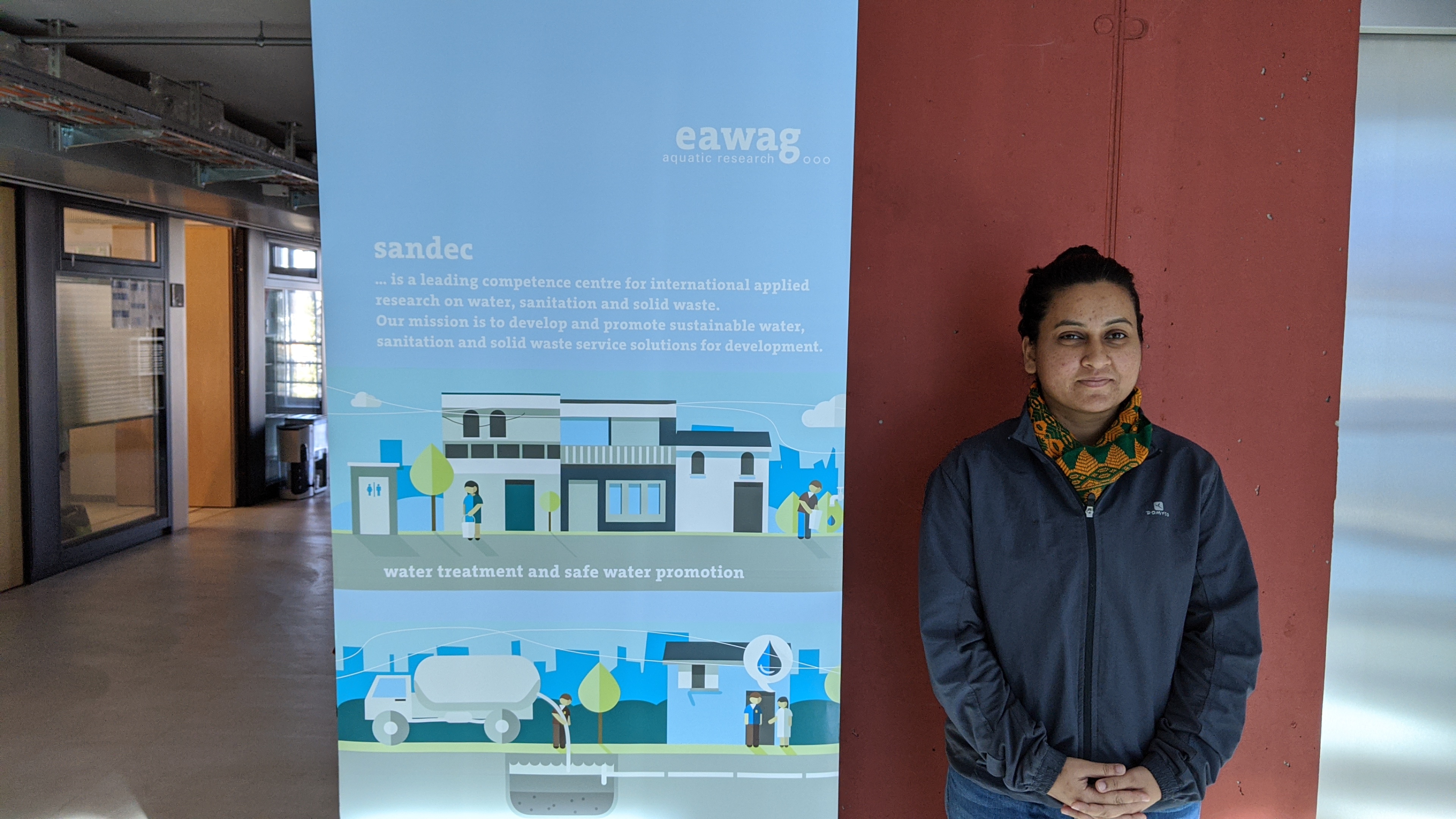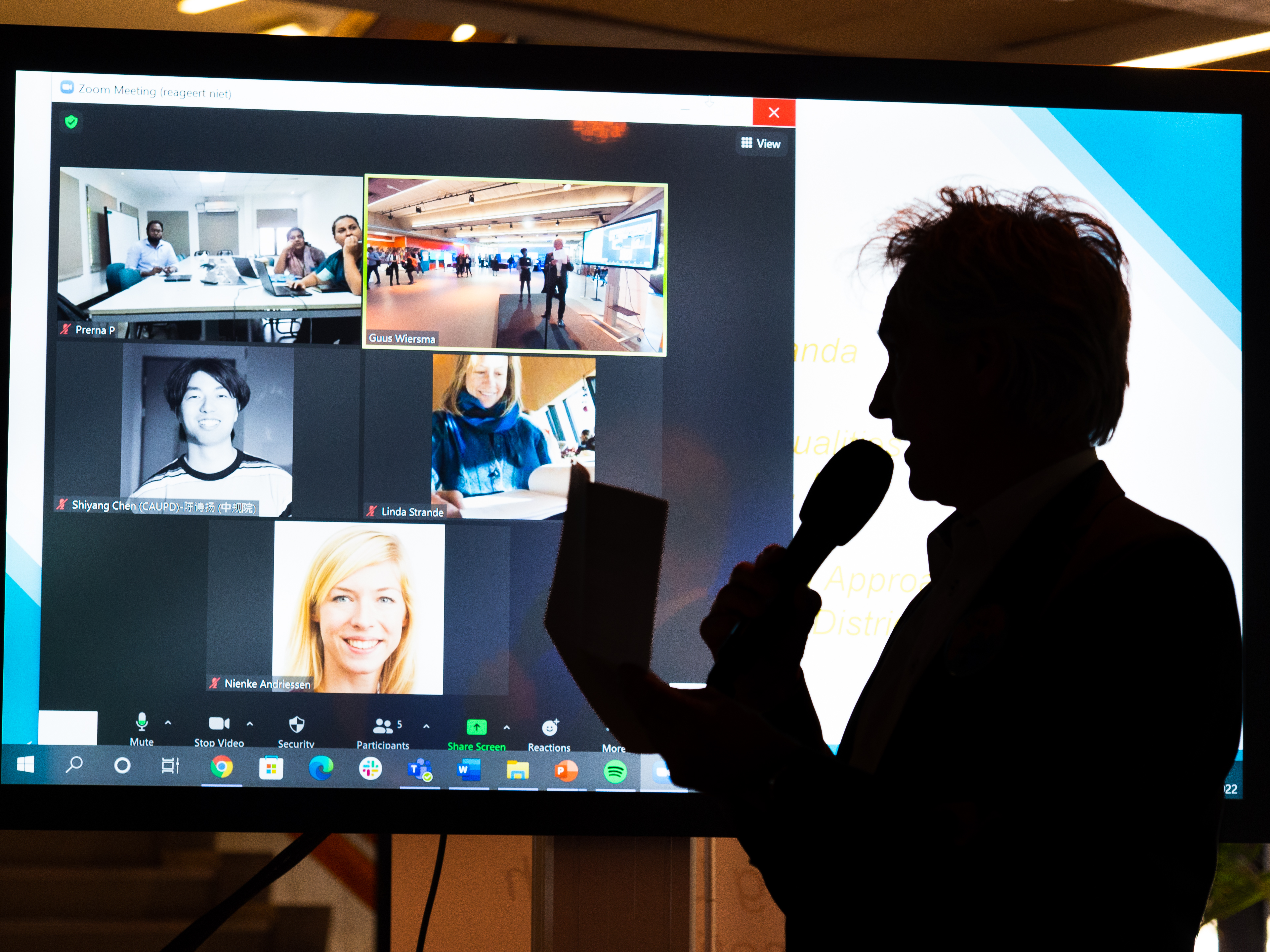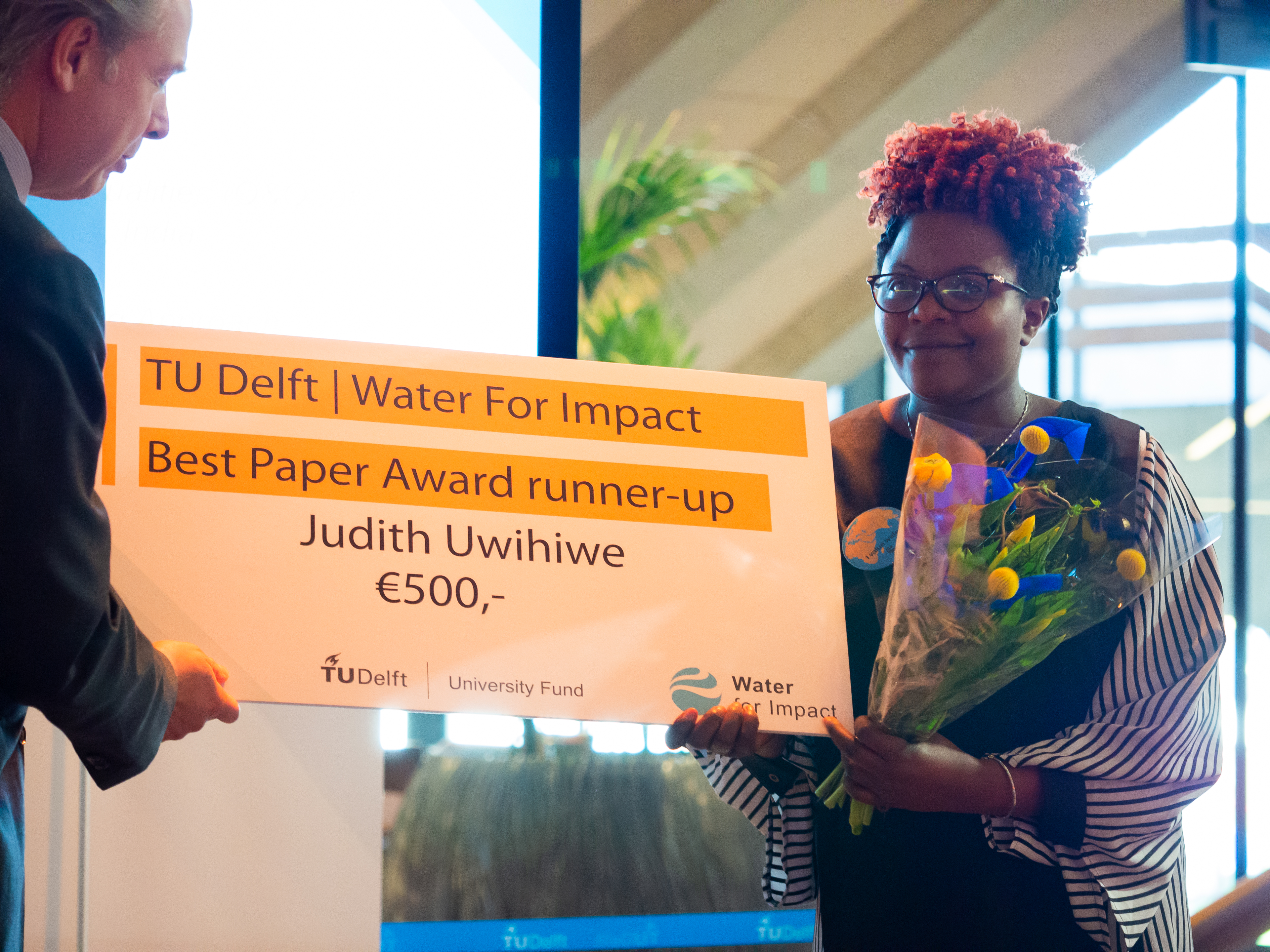Prerna Prasad wins Best Paper Award 2022
On March 15, Prerna Prasad (Consortium for DEWATS Dissemination Society, CCD) received first place in the annual Best Paper Award, handed out by the TU Delft | Water for Impact research group during the Water Summit for Global Development 2022. The two runner-ups are Judith Uwihirwe (TU Delft) and Shiyang Chen (TU Delft). The winner receives €2.000,- and the two runner-ups receive €500,- each. This award is made possible through the Goede Vrienden of Delft University Fund.
Students from all over the world sent in their master theses centered on water research to vie for the ‘Best Paper Award’ handed out by the Water for Impact research group at the TU Delft. The jury, consisting of an international panel of water researchers and represented on the day by Prof. Dr. Ir. Jules van Lier, was very impressed with the quality of all shortlisted papers. The great variety in topics made it difficult to compare the papers, and by focusing on the impact and relevance of each of the paper’s research helped the jury to come to a top three. The director of the Delft University Fund, Jasper Peterich, joined the ceremony to congratulate all winners.

In her paper 'Methods for estimating quantities and qualities (Q&Q) of faecal sludge: field evaluation in Sircilla, India', Prasad aims to standardize approaches for estimating accumulated quantities and qualities of faecal sludge, as an essential step for developing city-wide management planning tools. The jury noted the high relevance of Prasad's work in regards to the final stretch towards the SDGs; as well as the manuscript being emblematic of excellent development cooperation, where local experts have played a leading role in co-creation.


Research for ensuring access to clean water and sanitation for all
The jury especially liked the innovative approach Judith Uwihirwe took in her paper ‘Integration of observed and model derived groundwater levels in landslide threshold models in Rwanda’. Uwihirwe extended existing landslide inventories through compilation of other data sources reported from local newspapers, blogs, technical reports and field observations, which was used to augment the predictive capacity of models and for validation of numerical models.
Chen’s paper ‘Revisiting China’s Sponge City Planning Approach: Lessons From a Case Study on Qinhuai District, Nanjing’ was considered by the jury to be an especially technically strong and wonderfully visualized paper; benefiting from the transdisciplinary collaboration of authors, including engineers and architects/urban planners.
The Best Paper Award is an annual recognition to researchers who contribute to SDG6: Ensure access to clean water and sanitation for all. The jury was composed of Dr. ir. Edo Abraham (TU Delft), Dr. Sara Marks (EAWAG), Mahmood Lutaaya (Western and South Western Region of National Water and Sewerage Corporation, Uganda) , Dr. Ana Mijic (Imperial College London), and Dr. Damir Brjdanovic (IHE Delft). The TU Delft | Water for Impact research group focuses on valuing water and promoting universal access to safe and affordable water, and is part of the TU Delft | Global Initiative.
Read the winning papers
- Prerna Prasad: Methods for estimating quantities and qualities (Q&Q) of faecal sludge: field evaluation in Sircilla, India
- Judith Uwihirwe: Integration of observed and model derived groundwater levels in landslide threshold models in Rwanda
- Shiyang Chen: Revisiting China’s Sponge City Planning Approach: Lessons From a Case Study on Qinhuai District, Nanjing
